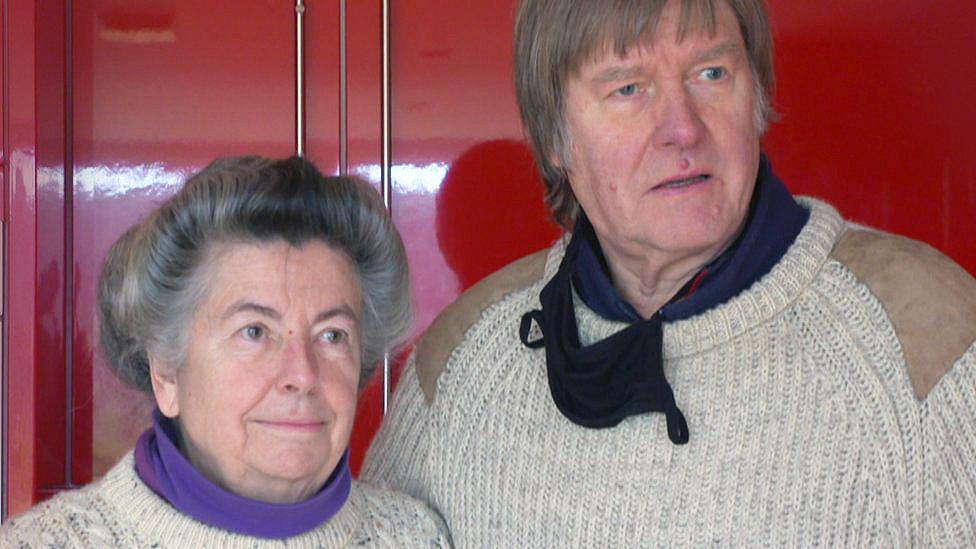Storm Arwen: Surviving seven days of winter without electricity
- Published
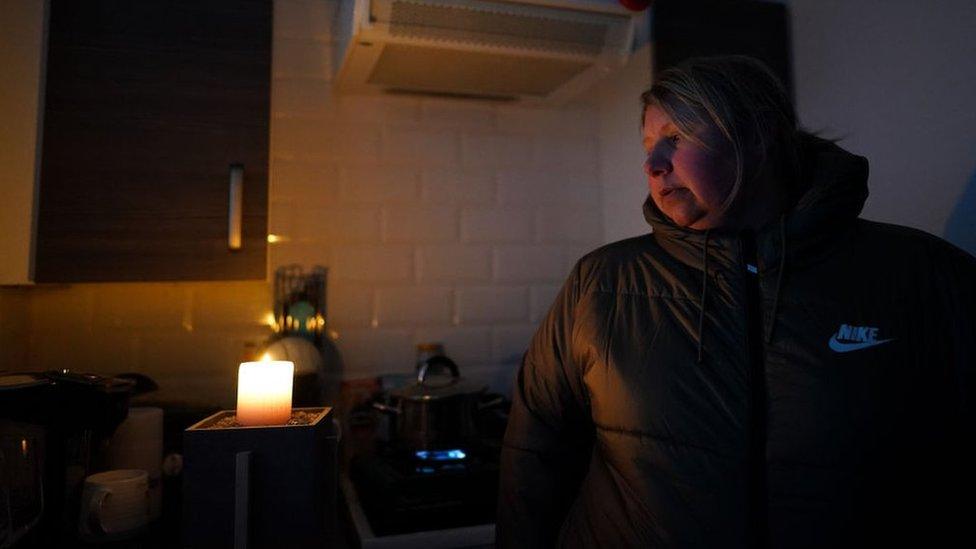
A week on from Storm Arwen thousands of people in north east Scotland, the south of Scotland and the north of England are still without power.
In Scotland, about 120 military personnel have been drafted in to help, focusing on welfare checks in the communities still badly affected. The Bellwin Scheme has now been activated, giving local councils financial support from the Scottish government to deal with emergency incidents.
In England, a major incident has been declared in County Durham while some households have been moved into temporary accommodation.
Here are the stories of some of those affected by the power cuts.

'My casserole and lots of layers have kept us going'

Linda and Paul Dunk have relied on a camping stove for hot meals
Linda Dunk made a casserole just before Storm Arwen hit - and since then it has provided her and her husband with a daily hot meal on their camping stove.
Mrs Dunk, 72, and her 75-year-old husband Paul live in a converted mill outside Torphins in Aberdeenshire, which was one of the areas worst hit last Friday.
They have been without power since then, and have relied on a wood burner for heat - alongside five layers of clothes - and a head torch to see in the dark.
An old telephone has been their means of communication to try to find updates about possible reconnection.

The couple have been using a head torch to see in the dark
"Cold becomes very exhausting", Mrs Dunk said. "We are both in our 70s, you start to ache more - this building is getting colder and colder. We are carrying heavy buckets of water in the snow. And it's very boring, just medieval - how our ancestors lived thousands of years ago.
"Last Friday lunchtime I made a beef casserole and then the storm came. We have lived on that - one decent hot meal every day, with rice, and cabbage from the garden.
"I think the most distressing thing is that you think you might get power back on, then you are off another 24 hours, and your optimism drops."
She added: "I want to stress we really appreciate the efforts of the community, and the engineers out there in this weather."

The mum feeding a baby in the freezing cold
Dr Lily Fulton-Humble is living without power with a seven-week-old baby and a sick toddler
Dr Lily Fulton-Humble, who lives near Alnwick in Northumberland, said the past week had been "difficult".
She has a seven-week old baby and a toddler. Her parents drove down from Scotland on Sunday to pick up her eldest child as she was unwell.
"It's pretty cold and, when you're feeding a baby every two hours, it's even colder," she said.
"It's been difficult and I think we're losing the stamina and perhaps, if we had known in advance, that it would be so long, we may have acted differently."

'We gave a diabetic cat injections by torchlight'

Meg Scarborough runs a cattery in the Scottish Borders
Artist Meg Scarborough runs a cattery in Foulden in the Scottish Borders which went five nights without electricity.
"We had nine cats in during the storm, luckily the cattery itself is extremely protected so the cats didn't seem to be too bothered," she said. We were having to fill up hot water bottles to put in cat beds as that was the only way to keep them warm."
She said her village felt "forgotten about" but had rallied round to help with a nearby community larder staying open late to offer hot drinks and charging points.

There were nine cats staying at the site when the power went out
"Scottish Power would send us updates every day saying we should expect power back in our homes by 16:00, then pushed back to 22:00 and every day we waited and it never happened," she said.
"It made us feel very helpless, especially as a lot of the people in the village are elderly or disabled."
She said that it was particularly difficult to look after one pet in her care.
"Scottish Power was offering hotels for some vulnerable people but what could we do when we run a cattery?" she asked.
"I felt that Scottish Power should have supplied us with a generator so at least we wouldn't have had to give a diabetic cat her insulin injections under torchlight."

'Getting our children to bed by candlelight is so hard'
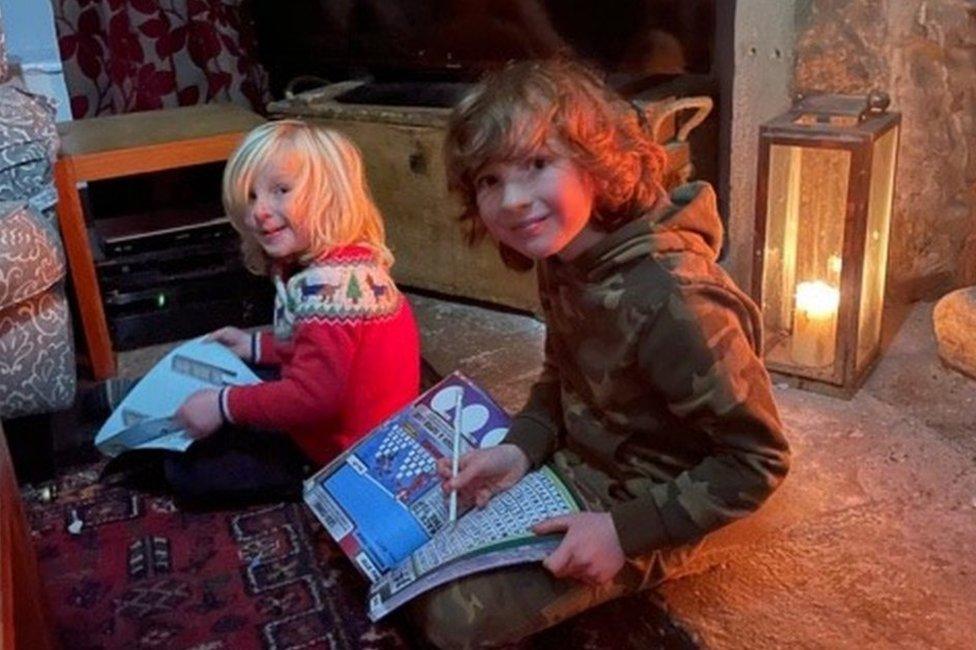
The Hills family have five children under 10
Tony and Nicola Hills, from Kirkby Lonsdale in Cumbria, reported their power cut at 06:24 GMT on Saturday morning and were told the fault would be recorded, however, later found it had not been.
In a letter to Westmorland and Lonsdale MP Tim Farron, Mr Hills said: "We are a family with five children comprising twins at 20 months, and a four-year-old, a seven-year-old and a nine-year-old.
"Getting children to bed with candle light and then up to a cold house is so hard. We are priority customers and yet that counts for nothing as far as we can see."
Mr Hills also said the £700 maximum compensation available would "in no way" make up for the loss of earnings and spoilt food in their fridge and freezer.

Mountain-bike trails 'could be closed for weeks'
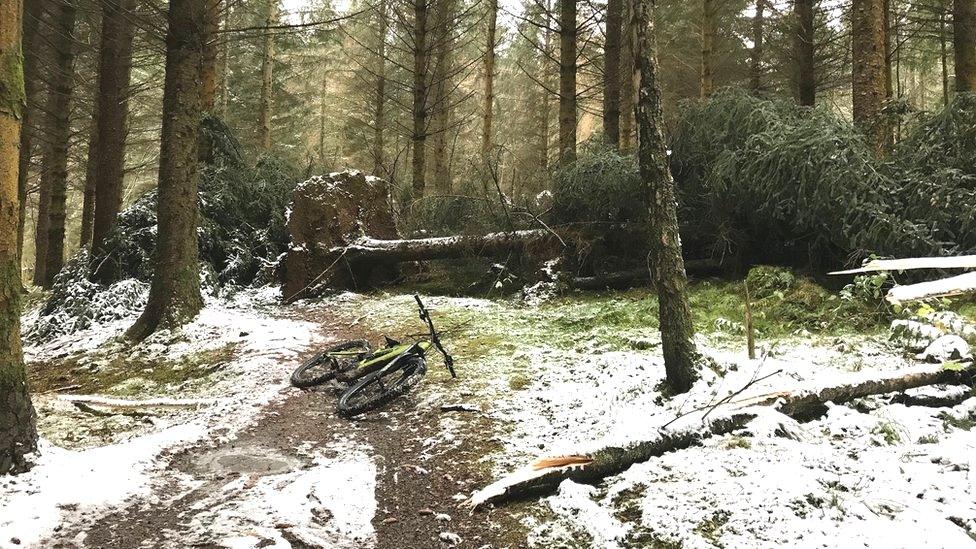
It will take weeks before routes can reopen at Glentress in the Borders
At Glentress, a popular mountain biking and walking destination in the Borders, they are still assessing the scale of the damage.
Forestry and Land Scotland's regional visitor services manager Martin Page said his team across southern Scotland had been working "flat out" at all of its sites.
The public has been asked to stay away while they assess how soon the trails can reopen.
"It is likely to be weeks for the majority of them and some might take longer than that," he said.
He said they hoped to be able to open some trails before Christmas - but their first priority had to be public safety.
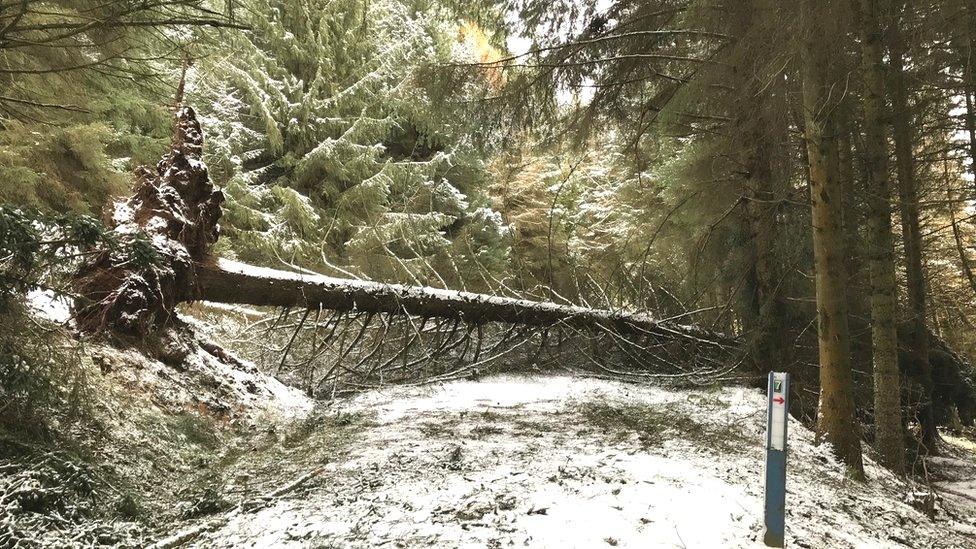
Work is ongoing to assess the damage across the south of Scotland

'Would this happen in London?'
Dr Terry Murphy from Bishop Auckland in County Durham told BBC Radio 5 Live there was a "great deal of concern about the power companies' strategies".
"If you're constantly telling vulnerable people that power will be on in a few hours, they're making bad decisions because you're giving them the wrong information," he said.
"If they'd given good information from day one there are a lot of people who'd be in a much better situation.
"People say, would this happen in London?
"The best I've heard it put is an elderly gentleman who said there's not much evidence of 'levelling up', it's more like 'powering down'."

Destruction 'the worst' engineer has seen
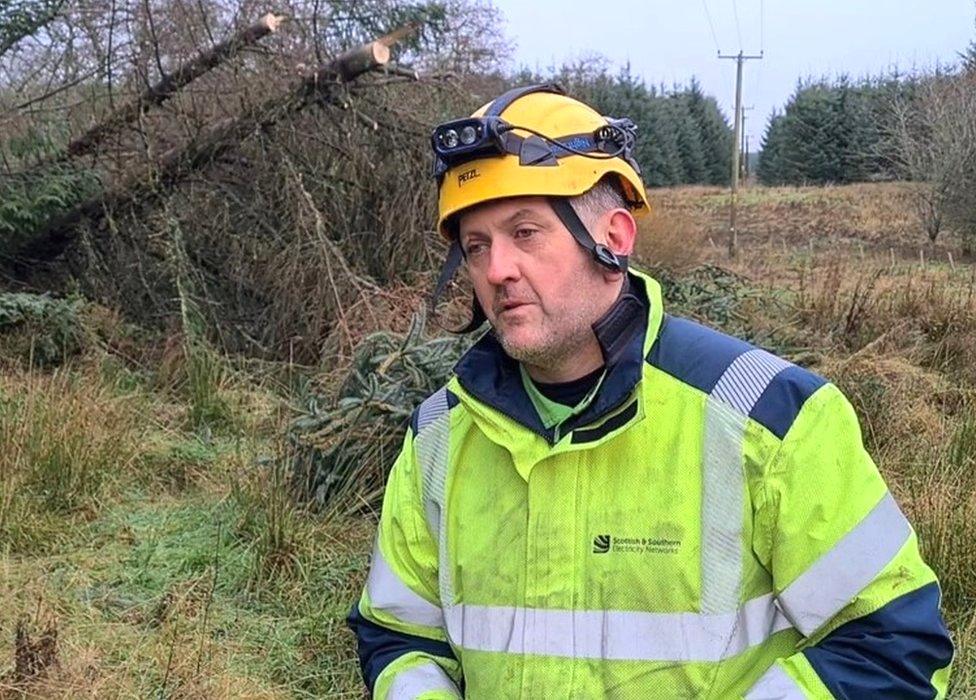
SSEN project engineer John Shanks said the hours have been long
There may have been complaints about communication from power companies, but many people impacted by Storm Arwen have been overwhelmingly appreciative of the efforts of engineers on the ground trying to reconnect power for the past week.
SSEN project engineer John Shanks has been leading a team working to clear faults in Aberdeenshire areas, including near Hatton, Ellon, New Deer and Fyvie.
Additional team members have been drafted in from Orkney, Skye and the Uists as well as Melksham in Wiltshire.
He has worked for SSEN for more than 20 years, and said the widespread destruction caused by Storm Arwen was the worst he had seen.
"We're working really long hours to get the network restored back to normal", he said. "Storm Arwen has caused lots of windblown damage, lots of trees down, lots of flying debris - the majority of the damage is trees that are down on overhead lines.
"We generally would work until about midnight, but if there's an option to restore a few extra customers we will be working on an extra hour or two to do so. Conditions have been tough."
- Published2 December 2021
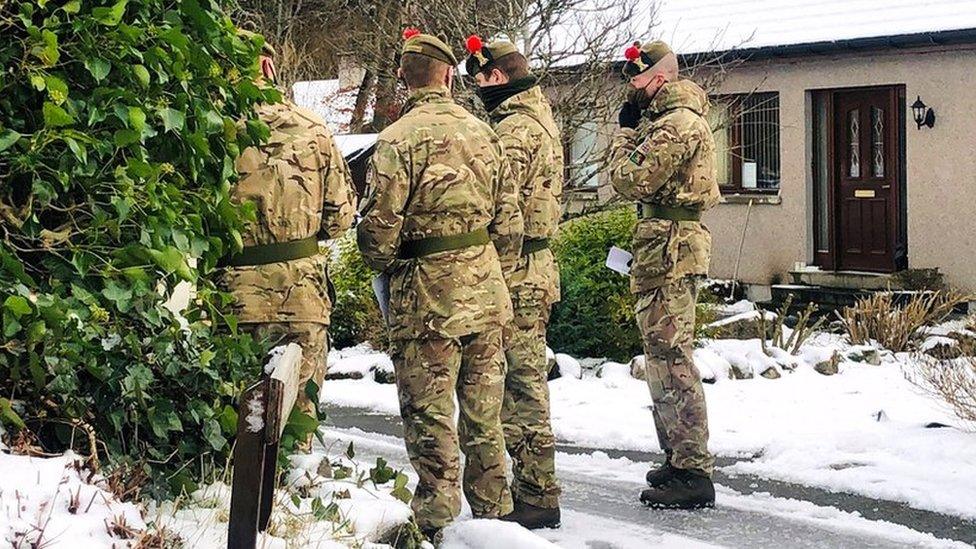
- Published2 December 2021
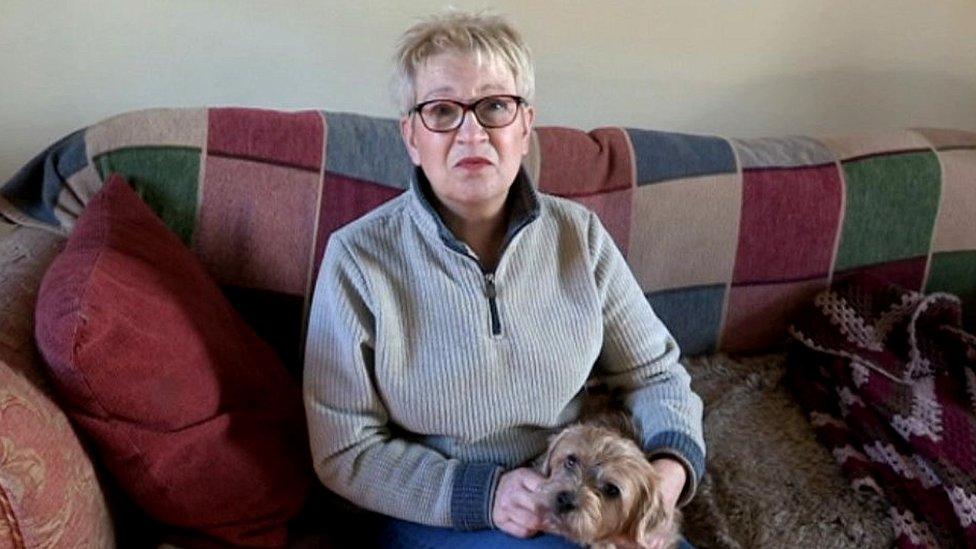
- Published1 December 2021
